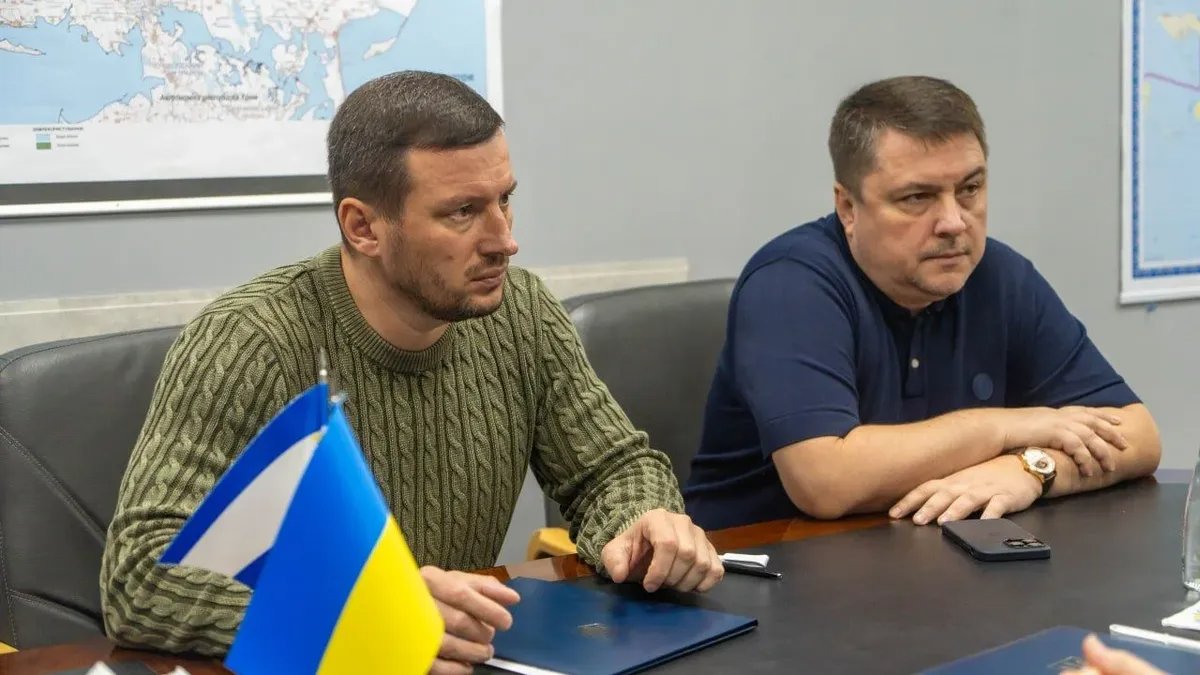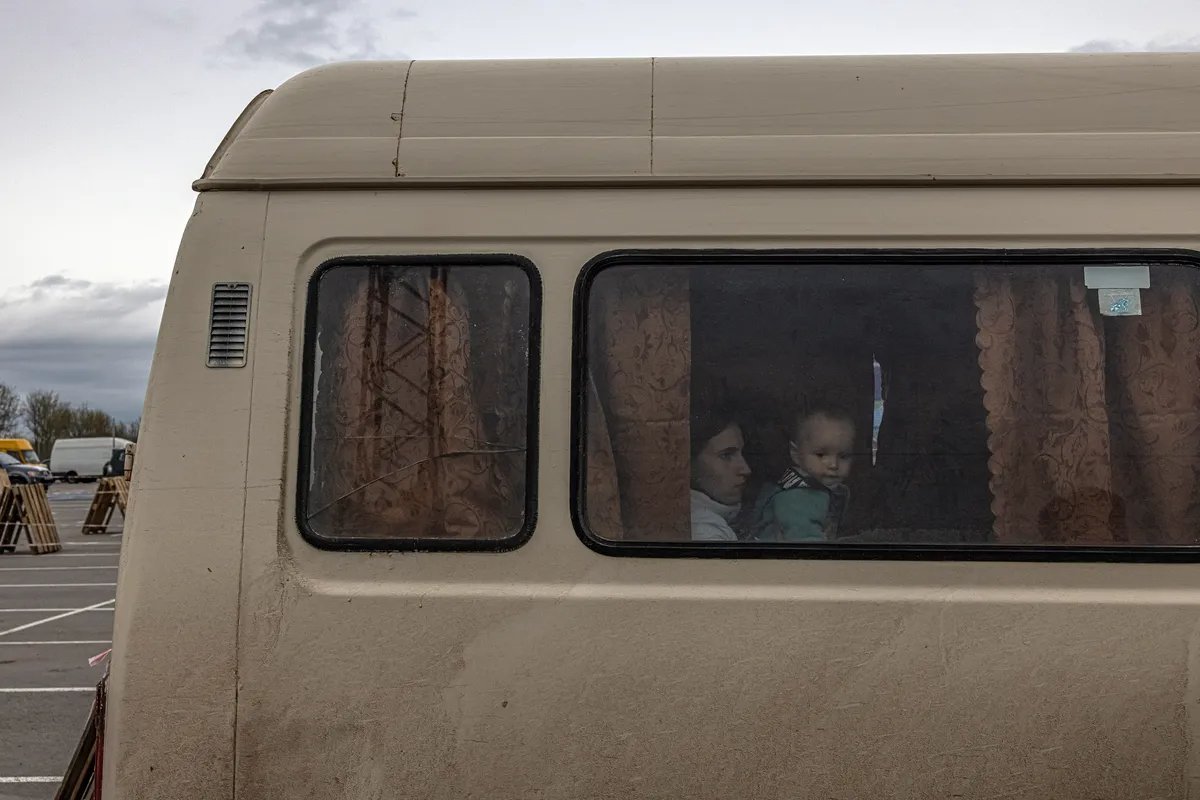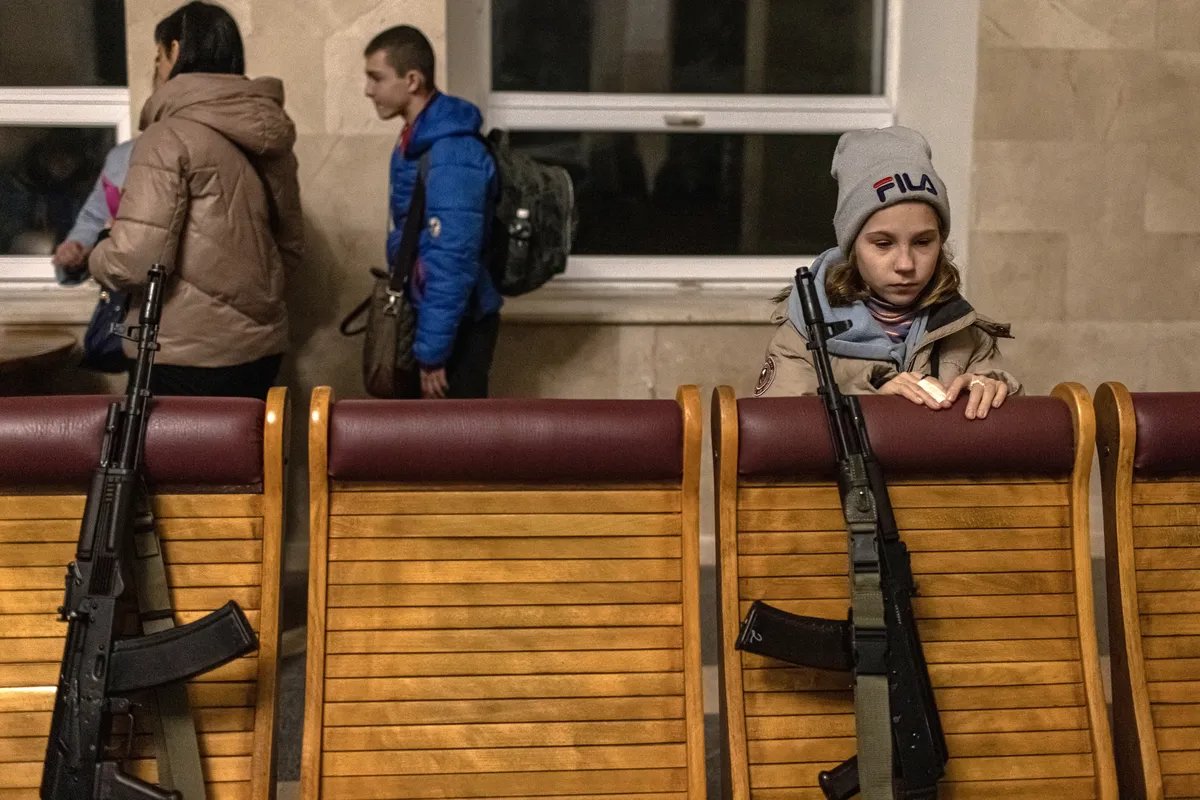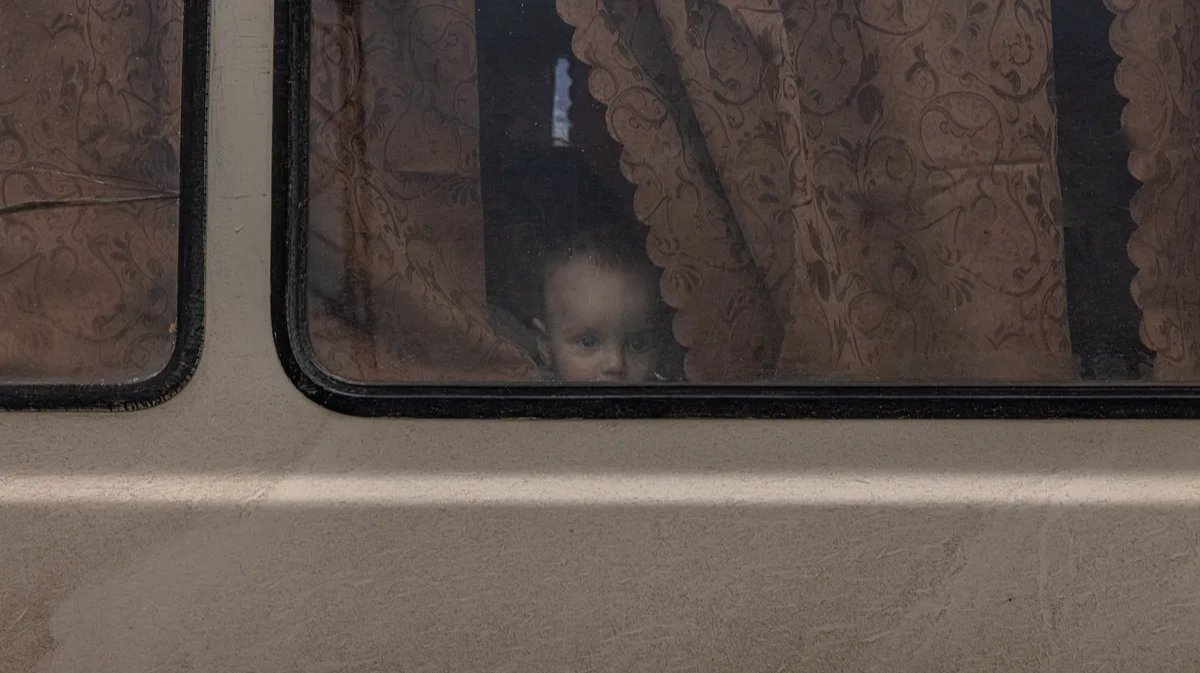Ukrainian civilians continue to die from Russian shelling every day. More often than not, the victims are the residents of towns and villages that just happen to be in an active combat zone. Tragically, some of them are children.
Concluding that evacuation is the answer, Ukraine’s Ministry for the Reintegration of Temporarily Occupied Territories, alongside the authorities in the non-Russian occupied parts of Ukraine’s Kherson, Donetsk, and Kharkiv regions, recently announced the mandatory evacuation of children from villages near the frontline. However, it remains to be seen if this means permanent resettlement or just temporary relocation.
Officially speaking
Last week, the authorities in the Donetsk region announced the mandatory evacuation of approximately 250 children from eight towns in the Bakhmut and Pokrovsk districts. The aim was to evacuate them all, accompanied by a parent or legal guardian, before the onset of the winter weather.
In the neighbouring Kharkiv region, 41 children have reportedly been evacuated already, but there are plans for the mandatory evacuation of 275 more children from 10 towns.
According to the Ministry of Reintegration, evacuees are first sent to a processing point where they can rest, eat, and receive support and assistance. The children and their guardians will then be sent to the Zhytomyr region, where they will be provided with housing, social benefits, humanitarian aid, and psychological support free of charge.
"We have agreed on the mandatory evacuation of families with children," said Kherson Governor Oleksandr Prokudin on 23 October. "This concerns 34 towns where the security situation is most challenging. However, not everyone is agreeing to leave. Meanwhile, the enemy is ruthlessly shelling our cities and villages every day.
Dozens of bombs are hitting residential buildings, with children nearby in constant danger. So we’ve decided to forcibly evacuate them."

Kherson Governor Oleksandr Prokudin. Photo: Telegram
Prokudin called on parents to think of their children’s psychological and emotional well-being, as well as their education, and future. "Homes can be rebuilt, but it's much harder to restore a child's health," he stressed. "How will years of living in constant fear affect their future? The evacuation is free, and housing will be provided upon request. What’s stopping you?"
‘As soon as they let us, we’ll come back home’
Olena, 40, lives with her four children in an apartment block in the city of Kherson. She says they’ve all learned the "two-wall rule" — when shelling begins, they hide in the farthest room, which is considered the least dangerous. They don’t go down to the basement, even though they have one. "The basement in our building is in such a state that there’s less chance of surviving an explosion there than in our apartment. We'd rather wait out the next air-raid warning at home," Olena says. The children do distance learning and the family has no plans to leave, even though their area of Kherson comes under intense shelling every day.
Olena has heard media reports about the mandatory evacuation of children, but doesn’t know how it will work in practice. A few days ago, social welfare authorities offered her the option of sending her children to spend a month in the Carpathian Mountains before returning to Kherson. They gave her a day to think it over. The next day when she called to give her consent, however, there were no spaces left, so even a temporary respite from the shelling wasn’t possible.
"To be honest, I don't want to leave Kherson at all, it’s my home," Olena admits.
"So what if it's dangerous? Of course, I worry about my children, but on the whole, we've adapted to it. I wouldn't voluntarily move anywhere."
Olena explains that, following the withdrawal of Russian forces from Kherson last year, she briefly relocated her family to Odesa where she was given state benefits for temporarily displaced persons worth 7,000 hryvnia per month (€180), an amount on which she says it was very difficult to survive.
While food prices in Odesa are comparable to those in Kherson, housing costs are astronomical, with a month’s rent for a one-bedroom apartment starting at 4000 hryvnia (€105). Clothing and consumer goods are equally expensive, and finding work is challenging. "It's a big city, but there are so many people – it felt like the whole Kherson region had moved there. So we came back home."

A child looks out of a minibus window in the port city of Henichesk in the Kherson region. Photo: Roman Pilipey / EPA-EFE
"If they come to our home and demand that my children be evacuated, I'll act according to the situation," Olena says. "Of course, if it becomes urgent, we won't resist, and we'll go where they tell us. But as soon as they let us, we'll come back home."
At your own risk
"I can say for certain that no one is taking anyone by force," says Kherson journalist Kostiantyn Ryzhenko. "This whole story is about the situation in the frontline villages. Imagine a village of around 2,000 people. Most people will have left, leaving just a hundred or so. While adults can choose to risk staying and look after themselves, it's much more complicated than that with children. If something happens to their parents, they’ll be left alone.”
“The child welfare authorities are responsible for looking after them and ensuring they have access to education. That’s more challenging when there’s only one or two children in the entire village, and there are dozens of villages like that. The authorities are trying to find a way of evacuating people without putting any additional strain on the already overloaded social support system."
According to Ryzhenko, mandatory evacuation is not a legal term, but one the authorities are using to put psychological pressure on people by reminding them how dangerous their situation is, however normalised it may have become.
Regional politicians keen to bolster their popularity ahead of expected elections next year have started looking to volunteer organisations for help with evacuating children from around the frontline.
Due to martial law, volunteers are not currently able to travel freely in the frontline zone without permission from the military. That said, arrangements can always be made.
"The administration works [with volunteers] like this: we provide you with the necessary permits, and you get the opportunity to fulfil your obligations to your donors," explains Ryzhenko. "But in return, you need to evacuate a certain number of people on our behalf."
“This means that volunteers evacuate people and officials take the credit.”
The displaced
According to Ryzhenko, many of those forced to leave their homes mistakenly believe that, after relocating to a less dangerous area, the state "will take care of them for the rest of their lives." While the government has not placed a specific expiry date on its "care" for temporarily displaced persons (TDPs), it’s always been understood that free housing would be provided on a temporary basis.
"When you leave an occupied territory or frontline zone, the adaptation period can be quite lengthy," says Ryzhenko. "I myself only recovered more or less a year after leaving occupied Kherson, and even then, I still experience difficulties sometimes."
TDPs enter a society that has changed enormously since the start of the war, he stresses. They unexpectedly find themselves in a "brave new world" that they need to learn to understand.
It’s for people like this that temporary shelters exist, where they are helped to adapt and return to a normal life. The only problem is that those being evacuated are not initially informed that the shelters are temporary.
"I think that the period of evacuation from the frontline zone has been quite long, and almost everyone who wanted to leave has left," says Ryzhenko. "There are some who have their own reasons for not wanting to leave their homes and who are too attached to their land. Instead of asking to be evacuated, they ask for humanitarian aid to be brought to them. It makes no sense to send a group of volunteers to endure shelling to reach a village where there’s just one person left. There’s no doubt that all civilians, especially children, should leave the combat zone, but you can't order them to."

A girl waiting to board an evacuation train to Kyiv at Kherson’s railway station. Photo: Roman Pilipey / EPA-EFE
An official from the Kherson administration who asked not to be named said that there used to be around 45,000 children living in the city, but that there are now only about 6,000. Nothing has really been decided about the evacuation, and many questions remain.
On his Telegram channel, Oleksandr Prokudin recently posted a video report from his visit to villages in the Kherson region, where he was trying to persuade families with children to evacuate.
In Antonivka, he explained that a 100 children would be sent to a hostel with excellent living conditions and meals, and that they would return home "when it's safe," within a month or, at most, three. His words genuinely appeared to surprise the local residents.
Join us in rebuilding Novaya Gazeta Europe
The Russian government has banned independent media. We were forced to leave our country in order to keep doing our job, telling our readers about what is going on Russia, Ukraine and Europe.
We will continue fighting against warfare and dictatorship. We believe that freedom of speech is the most efficient antidote against tyranny. Support us financially to help us fight for peace and freedom.
By clicking the Support button, you agree to the processing of your personal data.
To cancel a regular donation, please write to [email protected]

